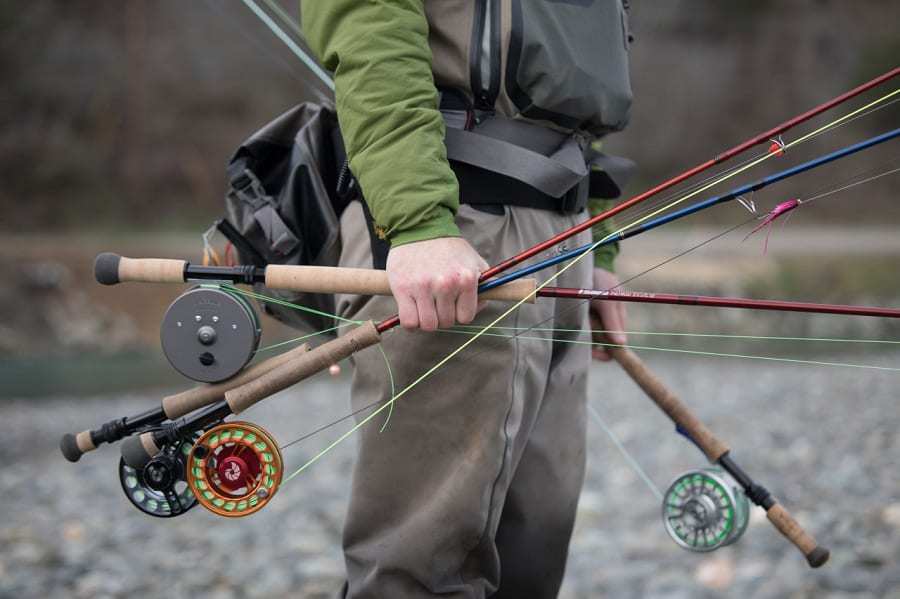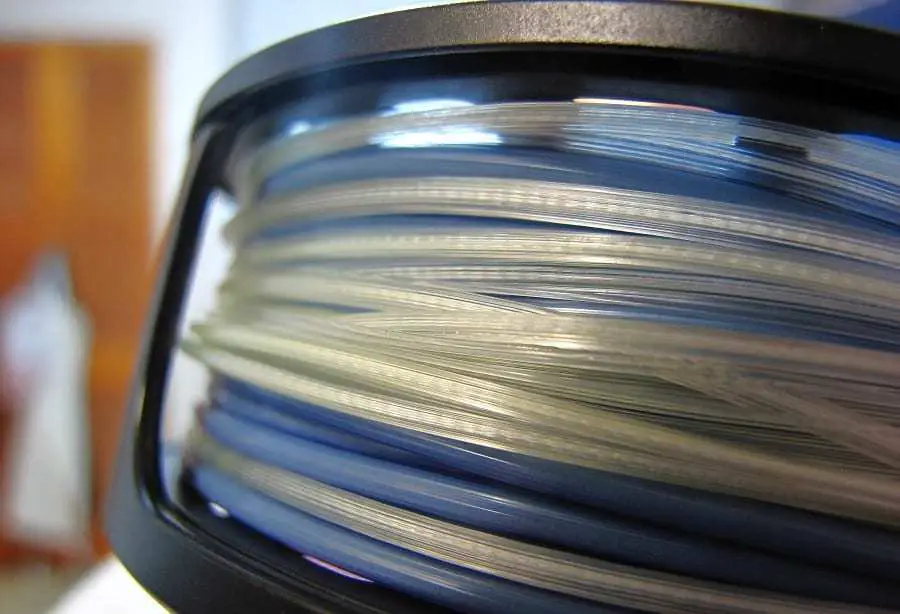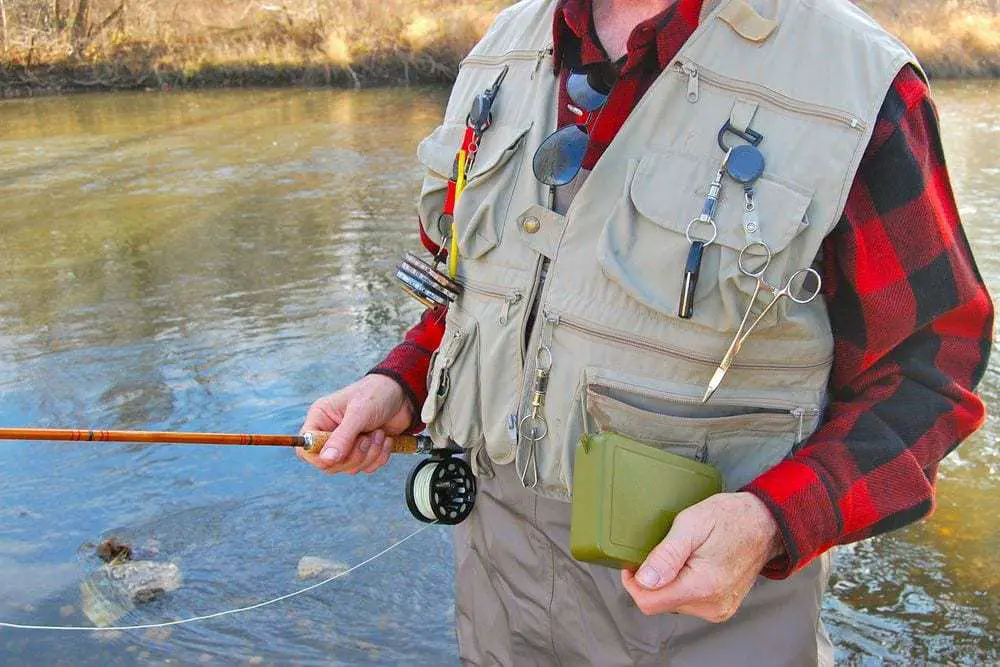Can you eat largemouth bass? A guide to how largemouth tastes, and how to eat it!
Largemouth Bass is one of the most popular of all the game fish species when it comes to anglers all over the world, and especially within the USA. In fact, Largemouth bass is the go-to for most people, as it is incredibly popular!
The thing is, however, that despite it being popular for fishing, it doesn’t seem to be as popular for eating.
In fact, you don’t really hear many people talk about eating the Largemouth Bass they caught. Which, of course, raises the question of whether it can be eaten at all!
To put you out of your curiosity, the answer is actually yes.
You can eat Largemouth Bass and it will make for a fine meal, but it’s not as popular for eating as it is for fishing, because it simply isn’t the tastiest of fish.
Most people will fish their Largemouth Bass in ponds or rivers, and the fish there can have a muddy flavor that isn’t exactly appealing.
So…yeah, basically it is more fun to catch than it is to eat. But you can do both if you want to!
Can you eat Largemouth Bass?
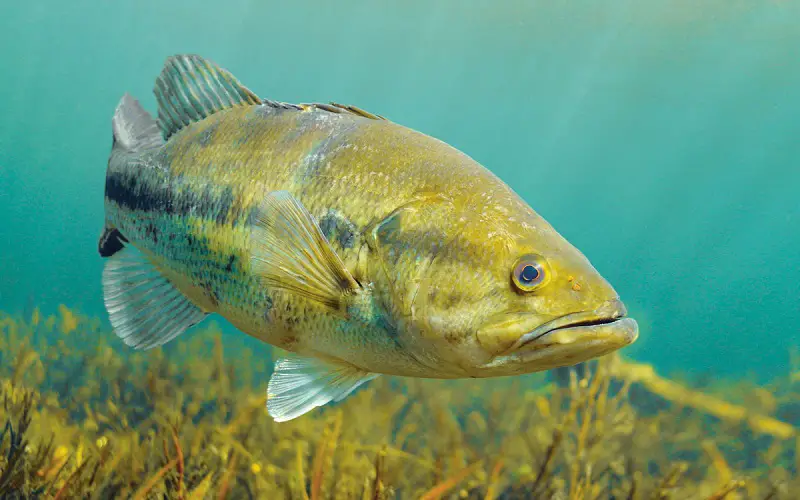
We’ve already clarified that you can, indeed, eat Largemouth Bass. But with Largemouth Bass being a popular fish to catch, but a not-so-popular fish to eat, you might still have doubts. Like…are we sure Largemouth Bass can be eaten?
In regards to Largemouth Bass being safe for human consumption, we can put you at ease, as it is 100% safe and many people eat Largemouth Bass, including the ones they catch personally.
In regards to the taste…well, it’s up to each individual’s personal preference! (We will talk about the taste of this fish later on, don’t worry.)
So as a general rule, Largemouth Bass can be eaten, with no problem.
However, like with anything in life, there are a few exceptions! This applies not only to Largemouth Bass but to all fish you go out to catch, in that you have to make sure they come from clean safe waters so that they’re not carrying anything toxic and unsafe to eat.
So when you catch a bass, and you’re planning to eat it, make sure of the following things:
- That the bass comes from clean waters. (They should be large and clear, not polluted. Avoid murky waters or canals.)
- Make sure the taste of the bass coincides with the smell of the water it came from. This might sound weird, but you essentially have to check that the bass definitely has the same feel as the water and that it doesn’t carry anything else. So if you caught the bass in a muddy pond, the fish should have a muddy sort of taste, you know? But as we said, you should go for clear and clean waters.
- Avoid eating Largemouth Bass in the summer, if you can, as this is when lakes and bodies of water are at their dirtiest.
What does Largemouth Bass taste like?
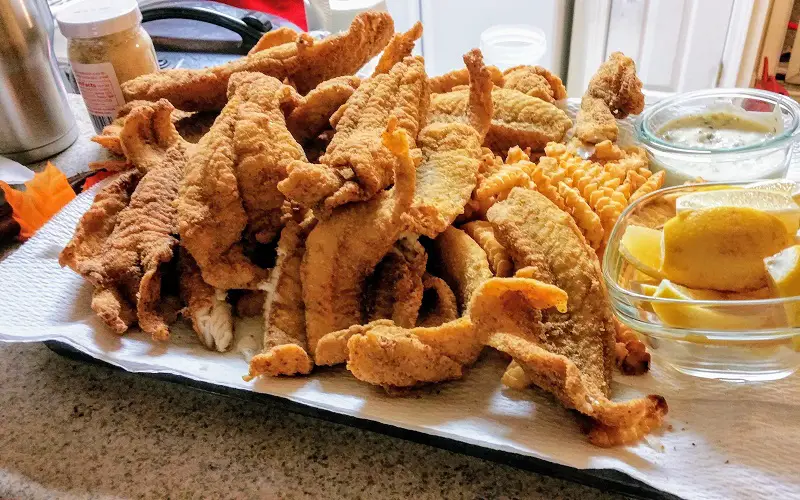
We said we would talk about the taste of Largemouth Bass later, and now it is later! Obviously, as it is famed for not tasting all that nice, hence why it’s popular to catch but not so much to eat, you will be curious as to what exactly this fish tastes like.
As a general rule, the taste will largely depend on the waters in which the fish has been caught. Here are the two main tastes of Largemouth Bass, depending on the water itself:
- From clean large water: Largemouth Bass from a clean large lake, for example, will have a taste similar to bluegill, mild and agreeable. If it is prepared right, the flesh is white and tender, and when fully cooked it becomes flaky. And honestly? Not a bad dish at all, many people love it!
- From murky or unclean waters: When you catch your Largemouth Bass from murky or unclean water, such as a small muddy pond, you can expect it to taste just as muddy, and it will pretty much taste terrible (according to most people’s preferences in flavor).
This is why it’s best to catch this fish in the cold seasons, so as to avoid the water being murky!
If caught from clean waters, Largemouth Bass doesn’t taste as bad as its reputation states, yet still, people avoid eating it more often than naught.
This is also due to the process of preparing the fish to be eaten. When you gut a Largemouth Bass, it releases a strong horrible smell from the body cavity, which cooks would rather avoid. Once they’re properly rinsed and cooked the smell disappears, but still, the process is not exactly nice.
Although most people will state that Largemouth Bass tastes horrible, and shouldn’t be eaten, there are plenty of people that vouch for it as a meal, and that very much enjoy eating it.
Not to mention the factors we already went through, that directly affect the taste.
But at the end of the day, it is completely up to personal preference, so only you can decide whether you think Largemouth Bass tastes good or bad.
What size of Largemouth Bass should you eat?
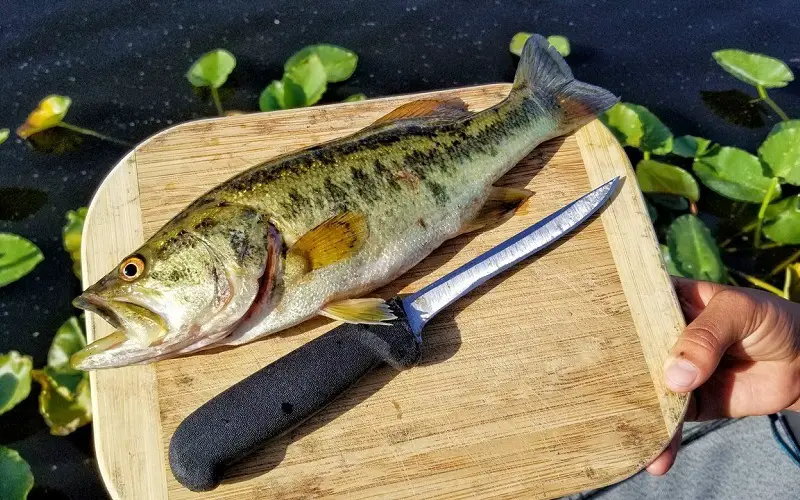
As a general rule, it is a lot easier to cook the smaller Largemouth Bass fish, as the meat is a lot more tender, and they often also taste better.
The older bass is tougher, with more toxins, and it’s also harder to get them fully cooked all the way through.
So if you’re going to eat Largemouth Bass, we recommend that you go for one between 10 and 14 inches in size, or at the very least, one no bigger than 15 inches in size, so that you’re making sure it’s one on the smaller and younger side of the scale.
Cooking Largemouth Bass
There are many different ways in which you can cook a Largemouth Bass, and the method that you choose will depend completely on your own skill and your own personal preference. After all, different people like their fish cooked in different ways!
You could pan fry your fish, or deep fry, or grill, or even bake!
The best way to cook a Largemouth Bass, by popular vote, is to filet them, and then cook them. So you should cut off the filets and then pull the skin off.
Then you can cover them with milk, flour, and breadcrumb batter.
Once you have this ready, you pan fry them. Or alternatively, you could cut the bass filets into smaller pieces, batter them, and deep fry.
You could also simply just bake them in some aluminum foil, to get as much flavor as possible.
When it comes to serving Largemouth Bass, the most common options are to season in crushed garlic and lemon juice, leaving them stew until the meat flakes off.
But as we keep saying, it is completely up to you and your personal preference. Why not create your very own recipe for Largemouth Bass?
Should you release Largemouth Bass, or eat them?
Largemouth Bass is one of the most popular game fish in the USA amongst anglers, which means that a lot of them get caught every single year.
If everybody who caught one then went on to eat it, we would have definitely seen their populations shrink in size.
But luckily, they don’t taste all that good so a lot of anglers simply release them back into the water.
But what should you do?
We recommend eating the smaller Largemouth Bass that you catch, as these will taste better, and release all the rest back into the water in order to both conserve the species and avoid having to endure the not-so-good taste!
References:



